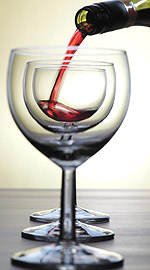For many, today, Monday 5th is the first day back to work since the festive season begun. And if world trend and statistics are to be considered, most people still suffer from holiday hangover.


For many, today, Monday 5th is the first day back to work since the festive season begun. And if world trend and statistics are to be considered, most people still suffer from holiday hangover.
By now however, the gifts boxes and wrappers have been put way. The champagne glasses washed and safely tucked away until next Christmas or the next big event, whichever comes sooner.
Those who traveled to their holiday homes have since locked them and headed back to urban centres from which they operate. And life is generally getting back to a semblance of normal. The only remnants of the holidays remains in the way we feel or look.
The over indulgence in both food and drinks, usually alcoholic, not to mention the sleepless nights, leave one’s body craving for some form of relief.
Unknown to many, the sluggish slow pace we seem to move about after the festivities has a lot to do with our food and alcohol consumption habits.
Not to be a party pooper however, I fully appreciate the important role of food, fun and fellowship, especially during special seasons and occasions.
The question now begs, ‘how do we get back to our active selves? How can we cleanse our bodies of all the accumulated matter and move on with the year? It is to this last question that many people seem to answer by turning to detoxification (detox in short) diets.
Detoxing is short for detoxification i.e. the process of removing toxic substances from the body. More specifically, detoxification refers to a number of different approaches by which the body is cleansed of harmful substances.
These include treatments for drug addiction and alcoholism, adopting certain diet plans that are thought to be innocuous to the body in general, alternate treatment methods (herbal, electromagnetic, acupuncture etc.), and other processes that focus on making the toxic substances less toxic to preclude their harmful effects.
Detoxification is classified in two classed; artificial and natural. The Human Need for detoxing is expound in the acclaimed book ‘Peer Prejudice and Discrimination’, by the late Dr. Harold Fishbein.
Here, he explains how our attitudes are shaped by the fact that as humans, our bodies have not changed significantly for the last 10,000 years. On the contrary, our societies and cultures have undergone extreme dynamism.
The discovery of innumerable chemicals and their use in synthetic food has caused several toxic substances to enter our bodies where no defensive system is developed enough to rid of them.
Hence we need detoxification for our survival. Scientists agree that if we had been living the old lifestyle and eating the same food, we would be more adapted to the environmental conditions.
Natural detox is mostly performed by the kidneys and liver; both organs playing special roles in removing toxic compounds (mostly those rich in nitrogen) from the body. Artificial detoxing is mostly carried out by techniques such as dialysis and chelation therapy.
Clearing the system by detoxing promises all kinds of results and is now a multi-million pound industry, with products and supplements to help expel unwanted toxins. But making dietary changes is at the core of most.
It can reportedly help people lose weight, beat cellulite, banish bloating and make your skin glow. The theory behind the diet is that bodies are continually overloaded with toxins, which build up in a person’s system and cause problems.
However, various schools of scientists now dispel the theories that have long supported the idea of detoxing. The British Dietetic Association says detox diets are marketing myths rather than nutritional reality.
"Detox is a meaningless term that is used all the time and because it hasn’t been defined, it’s impossible to say if it has worked or if it hasn’t,” says a spokesman. It further asserts that "the body is set up to deal with the chemicals it doesn’t want, and excrete them.”
A recent study by American researchers also concluded that detox diets do no more than the body’s own natural system to get rid of toxins. They said most modern books and detox kits serve up "empty promises”.
Scientists and dieticians argue that the benefits people feel are not due to their body getting rid of excessive toxins but are due to changing from what is likely to have been a "poor” diet.
Detoxing can actually be dangerous for groups such as teenagers or pregnant women, who cannot afford to deprive themselves of food groups. But some health experts say detoxing does have its benefits and can improve people’s diets.
The best way to ‘detox’ is probably not to over indulge in the first place. This may be too late to consider, as the deed may already have been done. Whether to detox or not, the sooner you get up and running, the less time you’ll waste in this first month of the year.
Contact: Turi_omollo@yahoo.co.uk


